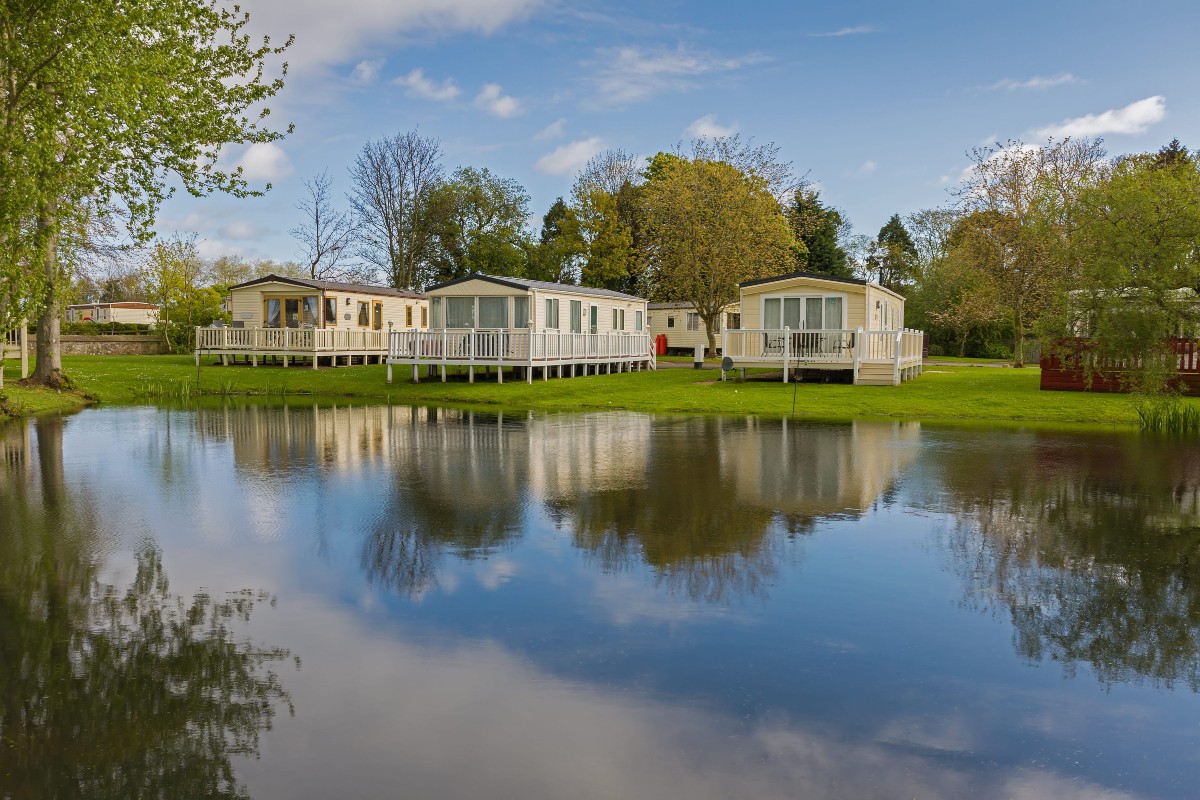The title of this blog sounds like a set-up for a joke, doesn’t it? However, it’s not – and if you are wondering what the differences between these types of caravan parks are, and how that might affect you, then you should read on to find out the key points…
Licensing of Caravan Parks
Believe it or not, the ‘rules’ around living in a permanent home on a caravan park are different to those around holiday homes (though as a starting point, both must be licensed). There are two types of licence: Residential means people can live permanently on the park and Holiday (or Leisure) means they can stay for breaks and/or extended visits. If the park doesn’t have rights of permanent residence, then you cannot live there full-time, even if the park is open all year round. The license for leisure homes is usually for a specific period of time (e.g. 10, 25 or 50 years) whereas residential park licences can be used ‘in perpetuity’ (as long as fees are paid) as they are subject to a virtual freehold (a lengthy type of lease).
The licence is issued by the local council, and it details how many caravans can be sited on the park, what health and safety considerations must be addressed, and what services and amenities must be present. Some parks can be mixed-use which means they will have both holiday homes and residential homes or plots on site. If you are intending to buy a caravan on a park, then the owner / operator of the park will be able to provide all of this information for you, which may have a bearing on your purchase.
A residential park home and a holiday home must also comply with different legal standards when it is built. Almost all holiday homes are built to the EN1647 standard, with all residential homes having to comply with British Standard BS3632 (which ensures that the caravan is suitable for permanent occupation). The major difference between these standards is to do with the level of insulation in the caravans. Holiday homes don’t require the same level of insulation as residential, so they are not required to attain the BS3632 as they are designed for short term occupation. In fact, it is not legal to live full-time in a static caravan that doesn’t conform to the BS3632 standard.
As an interesting side note, these days many holiday caravans are built to BS3632 which isn’t actually a legal requirement. The reason for this is that many holiday parks have a year-round site license so caravans built to a residential standard means the owners can enjoy using their holiday home throughout the year.
Other Requirements
If your caravan is your permanent residence then you are legally obliged to pay the appropriate Council Tax for the area – and park homes are classed as band A, which is the lowest band (i.e. the most inexpensive). Your wheelie bins will be collected just as they would for a bricks-and-mortar home, and other services provided by Council Tax will be covered in your payment. However, if your caravan is your holiday home, then you won’t pay Council Tax – but you will be required to pay towards business rates (at a price agreed and stated in your contract with whoever runs the park).
Is There a Physical Difference?
Not always. However, residential parks do often have a different sort of layout to holiday parks, seeming to be more like the estates or streets that bricks-and-mortar houses are sited on (but with caravans in place instead of houses). Each caravan could have its own drive (for car parking) and dedicated garden area next to or around it. These individual plots might be fenced off, too, to mark the clear boundaries between one person’s property and another’s. In holiday parks it is possible that the caravans will be situated a little closer together than in residential parks and this is likely to be in a more uniform fashion.
Is There a Difference in ‘Way of Living’?
We’re talking about atmosphere, essentially. Is the atmosphere of a residential caravan park different to the atmosphere of a holiday park. The answer is yes, in some ways it is. These days people tend towards keeping themselves to themselves in terms of the minutiae of their daily lives, but there is still a strong sense of community in most places you go. So it is with residential caravan parks.
People will undoubtedly begin to get to know one another when they reside relatively closely on a residential caravan park. People will become neighbours and, as the saying goes, everybody needs good ones. There are often criteria which residents must meet in order to live there – and this could include consideration of things like age, pets, etc – so it’s possible that people of the same demographic will populate a residential park. With holiday parks, people won’t see each other on a daily basis as they may perhaps only come into contact for a few weeks each year.
If it is possible to site your permanent home on a mixed-use park which is essentially a holiday park, you may find that there is a level of social activity which might not occur on dedicated residential parks, as there are likely to be entertainment and leisure facilities accessible.
Hopefully this blog has given you a good grounding on the differences between residential parks and holiday parks. When you are considering moving on and are thinking “I want to sell my static caravan”, don’t forget that at Daly Parks we buy any static caravan – so contact us and let’s get the ball rolling…
